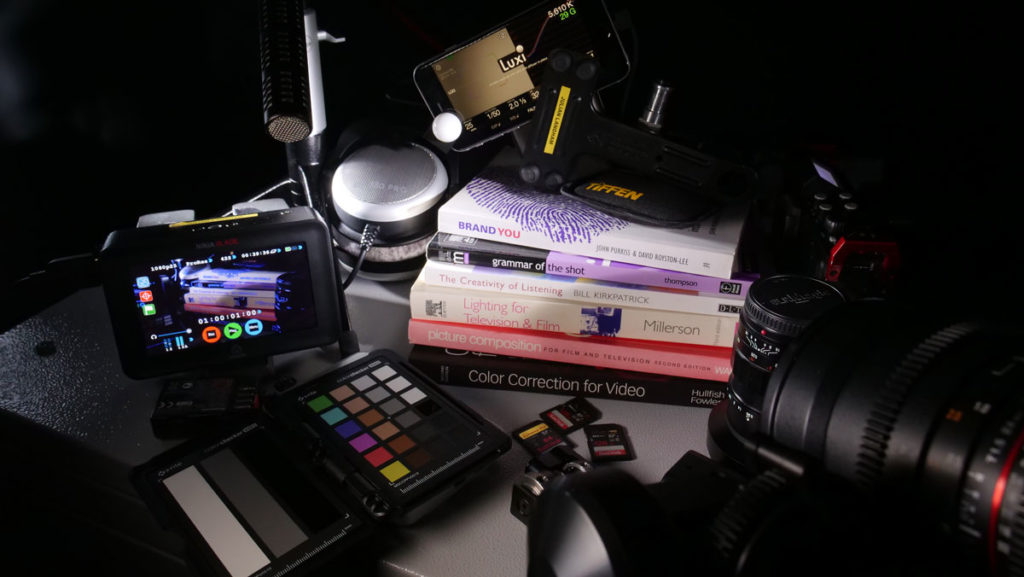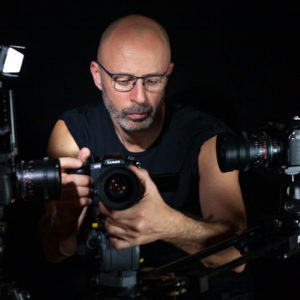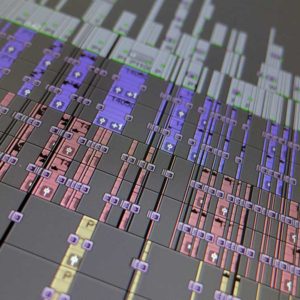With over 15 years’ experience of videography, I share some of my perspectives and views to help anyone who might be interested in working in this field or becoming a freelance videographer.

Do you have a passion for videography?
Following your passions in life is one of the best things you can do to ensure long term happiness. One of the things that I love about my work is that each creative or technical commission I receive is unique and always interesting. Working with clients from many fields of expertise, I offer them a wide range of high-quality digital services and prompt delivery of their particular projects. As a freelancer, working mostly as a sole operator, I find that each videography project has its specific requirements and potential challenges. Some challenges may be technical or creative; some may be deciding whether the brief can be delivered within the client’s budget or timeframe; some may be the suitability of the chosen location or even the subject of the project itself. All such challenges prove a great learning experience for me, and I learn something new from every different project I undertake.
What do I need to be successful?
Working as a successful freelancer in the field of videography means potentially investing the majority of your time to building a successful occupation. It also means making a significant investment in the video production equipment you will need. Here, you may expect me to recommend the best computer, a top-quality camera, the perfect lights and excellent sound gear. While indeed these are all very important, I would suggest, before making any commitments, that you first consider whether videography will suit you as a long-term occupation. Also, whether it is wise to commit and invest extensively in the purchase of equipment until you are sure you can make a success of your new career. Before investing, take a step back and assess what attributes you have to qualify for the role of a successful freelancer.
Personality and attributes
For success in the videography field, you need the appropriate qualities and character. These attributes include strong creative and technical abilities as well as having a keen interest in all aspects of digital media, film and video production. The ability to communicate clearly and to work cooperatively with a diverse range of people with different personalities is also crucial. Most important of all, you need to be motivated by your own set of relevant passions and interests. A reliable, dedicated, friendly and helpful customer-focused attitude will help you to make a success of a career in videography.
Differences in working freelance
There are many significant differences when working as a freelancer as compared to being an employee of a business or working for someone else. Firstly, it is vital to ensure that you work in a suitable environment with adequate facilities and services. Initially, depending on your resources, you may need to consider working from home to keep your costs down. As a sole trader, you will need to be resourceful and have the ability to research and solve any difficulties you may encounter. Self-motivation is all-important to enable you to achieve your future aims and to create new opportunities and partnerships to help you ensure your future success. There are many benefits of working as a freelancer, including being able to control your future direction, choosing projects that are of interest to you and managing your own time and schedule.
Developing videography skills
Videography craft skills can be acquired in a variety of ways. For some people, it may be to study related subjects like business, digital media, marketing and filmmaking at college or a university. However, this often means taking on considerable debt to pay for some hours of formal education, which may prove difficult to repay. Some people may take up the option of joining a company or even building a team of people with a like-minded vision and learning together. Some individuals may be more confident in their abilities and may prefer to invest in some videography kit to spend time gaining hands-on practical experience. Irrespective of your chosen path to achieving your skills, there is always so much to learn. Due to the ever-changing technological developments in this field, it is wise to consider that the acquisition of all the necessary craft skills can be a lifelong mission rather than imagining you can master them all in a short period.
The craft of videography
Irrespective of your chosen learning path, you will need to supplement this by also committing your own time to additional learning with books and other resources. Viewing online content that is related to your future aims can help you study subjects that you need to develop further. Watching documentaries and films can help you improve your storytelling skills and inspire your creativity. The best way to learn is to practice as much as you can on each of the specific skills that you will need to progress your videography career. These cover the individual craft skills of filming, sound-recording and post-production which includes media-management; editing; sound-mixing and colour-grading. Many highly regarded professionals dedicate their lives to honing their craft skills around just one of these roles. Working on your own commissioned projects in the field of videography, either as a videographer or filmmaker, is a highly rewarding role. To be successful in this, you need to be able to deliver a wide range of skills to a level that ensures both you and your clients are creatively and technically satisfied with the results.
Promoting your videography skills
In addition to learning many digital media and craft skills, it will be essential for you to become adept at advertising and to market your services. It is necessary to build up a range of online channels to share your work. Online networks will help you to promote yourself. Prospective clients need to be able to find and see examples of your skills and talents, and this will also create new business opportunities. Everyone has their unique personality and interests and, by considering how best to promote your selling points, you will be able to target and attract clients offering the types of projects you find interesting. Initially, it will be possible to set up your profile on online channels and networks free of charge. Once you are earning and feeling confident that you want to continue, you can consider marketing yourself further and investing in your website. Then you will need to acquire a whole new range of talents, e.g. SEO (Search Engine Optimisation) skills, to enable you to maximise the benefits of having a website which is easily accessible by interested parties.
What equipment do I need to work in videography?
Starting out it will help if you can use any equipment you already have, can get access to or can borrow or perhaps even hire. This might be as simple as a camera on a phone and a computer. You don’t need a load of high-end kit to start to explore and learn the skills you need. The production skills you need will cover photography, filming video, sound recording and lighting techniques. Post-production skills needed include media-management; video editing; sound-mixing; creating graphics; video effects and colour grading. You can start to learn to edit by filming your own shots or even downloading a selection of my royalty-free stock video. Over time and, as your client numbers increase, you will gain a great deal of experience and confidence in your abilities and so will be able to increase your customer base and income. Once your income more than covers your overheads, you may be in a position to invest in the additional high-quality kit to enable you to continue to enhance the quality and breadth of your videography services.
Starting as a freelancer
As a beginner and to gain experience in the art of videography, you may offer to help people with their digital media and computer technical problems or related creative projects. Create some videos for friends, for your extended social network or for people you might hear of that require some help with their promotional content or have a business. Working on these ‘friendly’ projects with people you may know will help you understand what you enjoy and what you are naturally good at doing. Initially, you might consider offering your skills for free. In this way, you can learn without the pressure of any expectation. Smaller-scale projects with people you know will also help you develop your confidence in the context of film and video production environments. People skills, such as learning to listen attentively to a potential client, are essential. Often if requested, clients will appreciate the contribution of your ideas to support their goals so be prepared by studying any brief provided in great detail. Being fully committed to every project you agree to work on, irrespective of the eventual outcomes will serve you well for your future career. By connecting with potential clients and learning more about what’s involved, you can demonstrate your dedication to making their projects successful.
Progressing your videography skills
Creating short-form content is an excellent way to learn and develop some of your digital craft skills. As your skills improve, creating social media videos is a helpful way to start building adding content to your online portfolio. As you progress further, you might want to develop your storytelling skills with dramatic short films or real-life documentaries. More sophisticated video production scenarios and challenges will arise from the new clients that will be making enquiries for your expertise and services you will be offering. As your craft skills further develop, you will providing more creative input and may get involved in designing, controlling and manipulating more elements of your video productions. Clients may need creative, marketing and technical information to help communicate their stories, advice around aspects of set-design, construction of lighting setups for filming, mixing sound beds and colour grading in post-production. By getting involved in all aspects of pre-production, production and post-production, your craft skills will grow and develop as you learn and dedicate your skills and abilities.
Overcoming challenges
When working as a freelancer specialising in all aspect of digital media and videography, there will be times when everything does not entirely fall into place irrespective of how well a project is researched, planned or indeed executed. Problems do arise unexpectedly, and challenging situations will sometimes occur. It’s important to realise that everyone learns from these, whether from their own mistakes or other technical failings. Being honest and always trying your best to overcome any complications will always be of benefit to you long term, especially when good outcomes are achieved. Working across a wide range of projects in different environments helps us all to develop more insight into how to prevent or resolve any problems that might and will arise.
Before working as a freelance videographer in London, I worked across many technical and post-production roles which included editing television programmes for the BBC. If you have any questions or would like any help with your film or video production project, please feel free to contact me. To view examples of my videography, please check out my video portfolio and my Vimeo channel.
More related articles from my blog include:
DBS checked cameraman ensuring safe working practices
Tips for editing subtitles and text to films and videos



